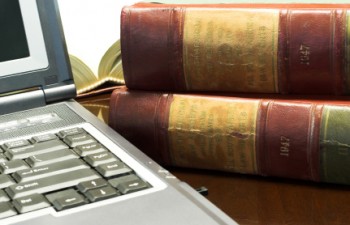As we speak’s submit is an excerpt from the e book 10 Core Practices for Higher Writing. Get pleasure from!
“‘Analysis’ is an excellent phrase for writers. It serves as an excuse for EVERYTHING.” — Rayne Corridor
Nearly all writers depend on analysis for information and knowledge. Even fiction writers and memoirists, whose work is both made up from creativeness or primarily based on private expertise, will flip to analysis to fill in holes and reply questions.
We use encyclopedias, reference books, and articles from scholarly journals, and we depend on historic information and knowledge collected by researchers so we are able to write honestly and truthfully. We additionally use Google, Wikipedia, and a number of different materials discovered on-line. All this analysis is meant to strengthen our work and result in higher, extra credible writing.
We take up this data after which spit it again out within the phrases we write. Then folks come alongside and browse our phrases. Possibly they go off and repeat what they’ve learn. Possibly they rehash our materials in a weblog submit of their very own. Possibly they use it in a tutorial paper, or maybe it evokes a poem or a brief story. The knowledge itself is consistently making the rounds, getting processed, filtered, and regurgitated. How are we to sift via all of it to search out dependable information? How will we inform the reality from the lies?
And telling fact from lies is crucial in conducting analysis. Misinformation is widespread, particularly on the web.
The Data Age
We’re at the moment bombarded with data. It’s extra accessible than ever earlier than in historical past. Thousands and thousands of information could be yours with just a few keystrokes and the press of a button. But, oddly, the unfold of misinformation appears extra rampant than ever. It’s changing into much less widespread for sources to be cited and extra doubtless that the so-called information you learn on-line are simply any individual’s beliefs or suspicions.
I discover the unfold of misinformation grossly irresponsible (it’s certainly one of my pet peeves). There are such a lot of methods to get the information straight, there’s actually no excuse for it. I’m not speaking about misunderstandings or unintentional errors—I’m speaking about both knowingly repeating issues which are unfaithful or willfully failing to get information straight earlier than reporting or repeating them.
However what does this should do with you as a author? How does accountable analysis (or lack thereof) mirror on a author’s credibility, and the way does stable analysis and the usage of reliable citations result in higher writing?
Credible Analysis for Writers
It may be troublesome to know when analysis is required to again up the information. There are some issues that we all know from life expertise or from working in a selected subject over a protracted time frame. Different issues are merely widespread data. And far on-line writing (particularly in blogs) includes doling out recommendation primarily based on private expertise.
However while you’re presenting historic knowledge, citing statistics, or quoting sources, you’ve gotten a accountability to get the information straight and in some instances, you also needs to cite them, particularly in nonfiction writing.
Citations are vital for just a few causes. First, a quotation provides your readers a chance to look additional into the subject. Second, you’re giving credit score the place credit score is due, to whoever compiled the information in your use. Third, by citing your sources, you’re displaying your individual work to be responsibly researched and due to this fact correct and credible.
How are you aware when analysis or citations are required or warranted? Use widespread sense and foster a bit curiosity. Begin by asking questions. If you happen to’re writing fiction, you don’t must cite your sources. If you happen to’re writing a tutorial essay, you do. In fiction and poetry, there’s room for make-believe. You should use creative license and bend actuality, however watch out for readers with excessive requirements. For instance, many science-fiction readers will harp on a e book with defective science. If you realize your viewers and publishing medium, they need to information the way you method analysis and citations.
The right way to Analysis for Writing
Listed below are some closing ideas to think about while you’re conducting analysis:
- Books aren’t the one analysis supplies you should utilize. Watch documentaries, conduct interviews, and test newspaper and periodical archives.
- Test your work for claims or statements which are debatable or that warrant proof. Are you quoting an individual or a textual content? Are you citing statistics? Are you making a declare?
- Be good in regards to the analysis you conduct. Verify the credibility of all of your sources.
- Double-check your information (and their sources) to see if claims have been countered. Attempt to not be one-sided.
- Cite your sources within the textual content, in footnotes, or in a bibliography (for books). On a weblog or web site, you possibly can embody a listing of sources on the backside of your article.

